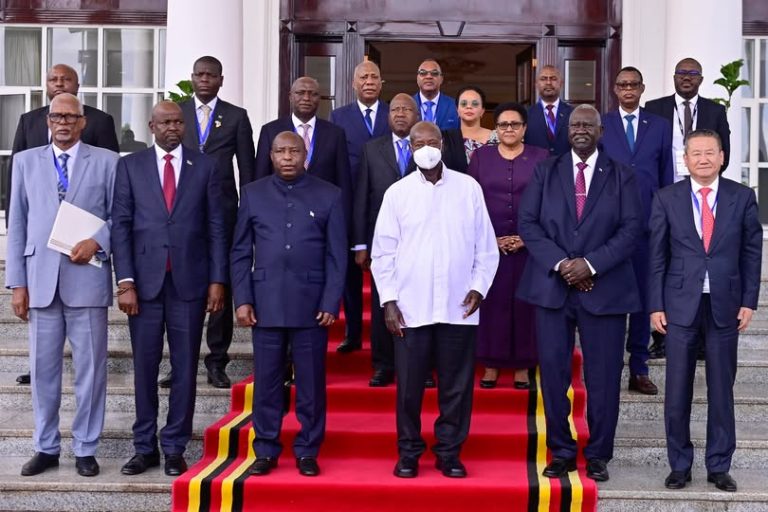Regional leaders attending the 12th High-Level Meeting of the Peace, Security, and Cooperation (PSC) Framework for the Democratic Republic of the Congo (DRC) and the Great Lakes Region have issued a unified call for an immediate and unconditional end to hostilities by all armed groups operating in eastern DRC.
In a joint communiqué released at the close of the summit in Kampala, Uganda, the leaders condemned the escalating violence and insecurity plaguing eastern DRC and urged foreign fighters to disarm and return to their countries of origin. They also called on member states to respect each other’s sovereignty and to refrain from supporting armed groups or individuals implicated in war crimes, crimes against humanity, or genocide.
“The people of the eastern DRC have suffered for far too long,” said President Félix Tshisekedi of the Democratic Republic of the Congo. “Today, we stand united to say: enough is enough. We demand peace, and we will hold accountable those who continue to fuel instability in our region.”
The mineral-rich eastern region of the DRC has long been a hotspot for armed conflict, with over 100 armed groups active in the area. Violence in provinces such as North Kivu, South Kivu, and Ituri has led to mass displacement, sexual violence, and a deepening humanitarian crisis.
President Yoweri Museveni of Uganda, the summit’s host, stressed the importance of regional unity and political will in addressing the crisis.
“No country in our region should give safe haven to war criminals or militia leaders,” Museveni declared. “The path to peace begins with justice, cooperation, and respect for each other’s sovereignty.”
The summit brought together heads of state and senior representatives from the DRC, Uganda, Rwanda, Burundi, Angola, South Sudan, Tanzania, and international bodies including the United Nations and African Union. The leaders reaffirmed their commitment to the PSC Framework, which was launched in 2013 to tackle the root causes of conflict in the DRC and promote sustainable peace and development in the Great Lakes Region.
UN Special Envoy to the Great Lakes Region, Huang Xia, who attended the meeting, welcomed the firm tone of the communiqué. “The call for disarmament and non-interference must be backed by action on the ground,” he said. “The international community stands ready to support regional efforts toward peace and stability.”
Human rights groups and civil society actors in the region have also expressed cautious optimism following the summit. “Words must now translate into real protection for communities under threat,” said Clarisse Mukobwajana, a peace activist from Goma. “We’ve heard promises before—this time, we hope leaders follow through.”
The leaders also emphasized the need to strengthen disarmament, demobilization, and reintegration (DDR) programs for ex-combatants, while calling for enhanced humanitarian support for displaced populations.
As part of the meeting’s resolutions, a follow-up mechanism will be set up to monitor compliance by signatory states and to report violations to regional and international bodies.
With tensions high in parts of the Great Lakes Region, the outcomes of the Kampala summit mark a renewed push for collective security and cooperation.


